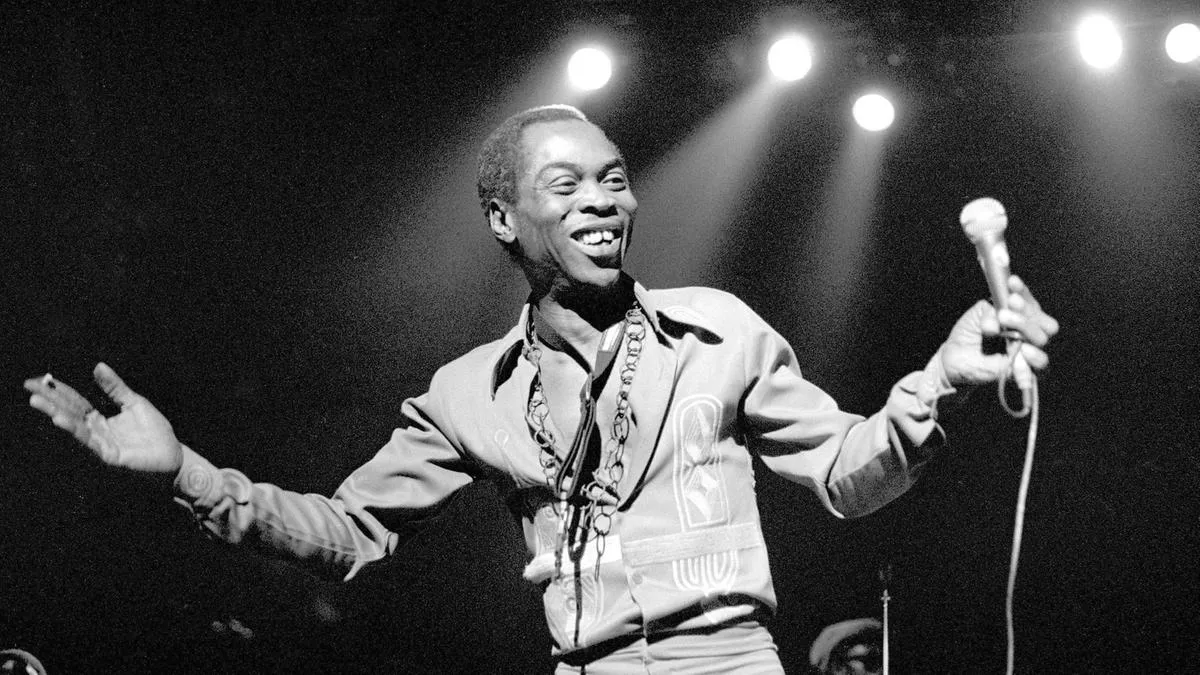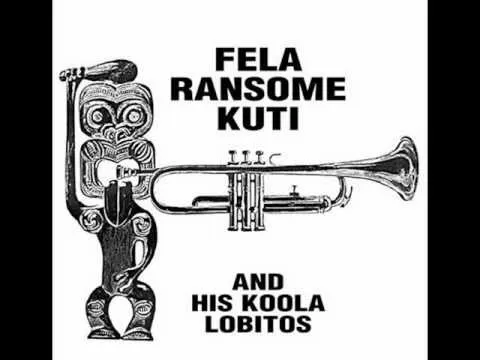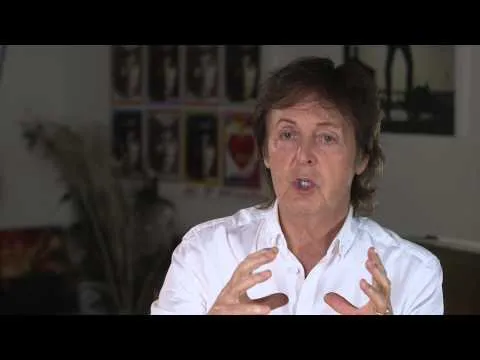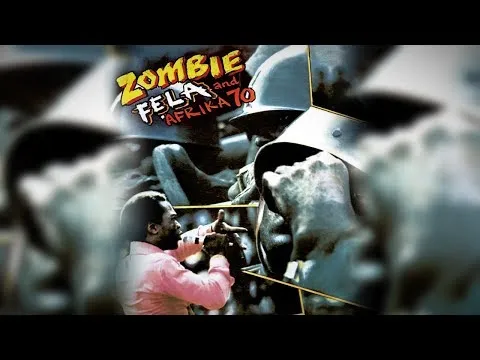Artist Spotlight - Fela Kuti, The Legend
How does one see a star that burned so bright? You don't, you listen.
FELA KUTI
His name inspires awe amongst fellow musicians and the public alike. Fela Anikulapo Kuti, otherwise know as Fela Kuti (or just Fela), has been credited with the invention of the Afrobeat genre, which is synonymous with Africa, in particular, Nigeria, and has subsequently been a huge influence on scores of musicians as time went by.
While taking nothing away from Fela himself, it must also be noted that the drummer who joined his band, Tony Allen, with his unique take on rhythm, was integral in forming this new genre with him.
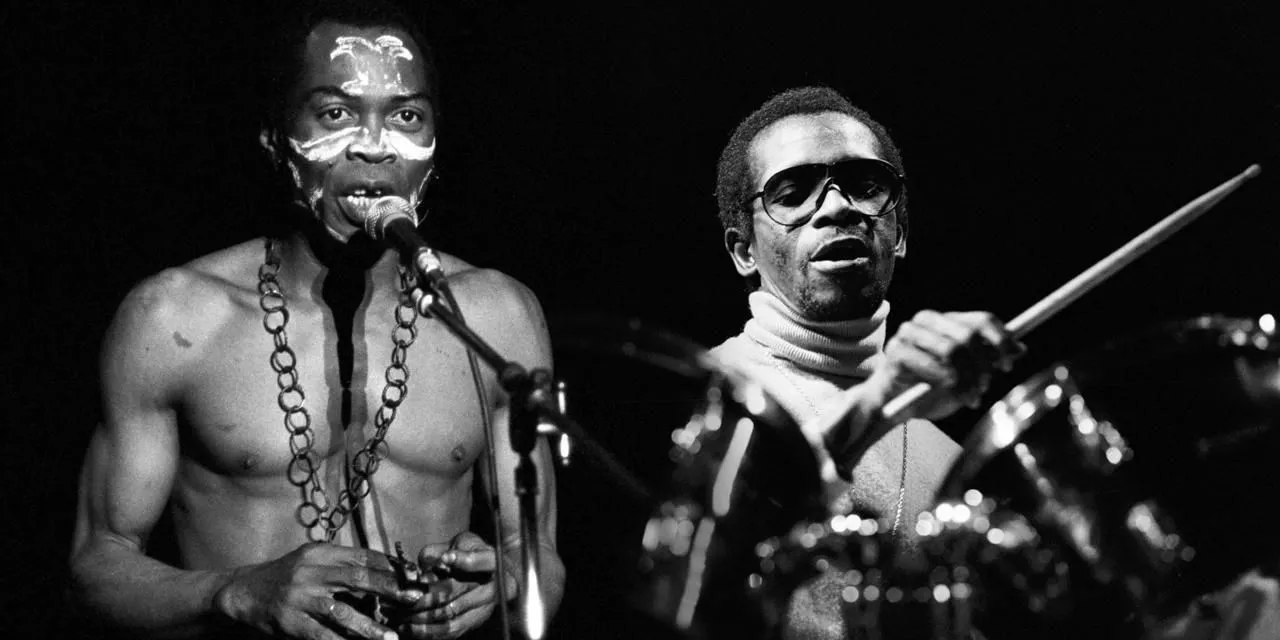
source:
Tony Allen & Fela with the band, Africa 70
BEFORE THE RISE
Fela was born in 1938 to a feminist activist mother and a reverend father in a relatively well-to-do family, which afforded him the opportunity to study music at the Trinity College of Music in London. Although he was originally focused on the trumpet as his main instrument at Trinity College, much of his success could also be attributed to his versatility as a multi-instrumentalist on keyboards, trumpet, saxophone, and percussion, as this afforded him a greater understanding of the "bigger picture" that he was working towards musically. While in the UK, he started a band called Koola Lobitos. One can very much hear the beginning of the Afrobeat sound developing in this earlier material as Fela mixed highlife and jazz.
He was an innovator, a man of dreams and passions, and a committed activist.
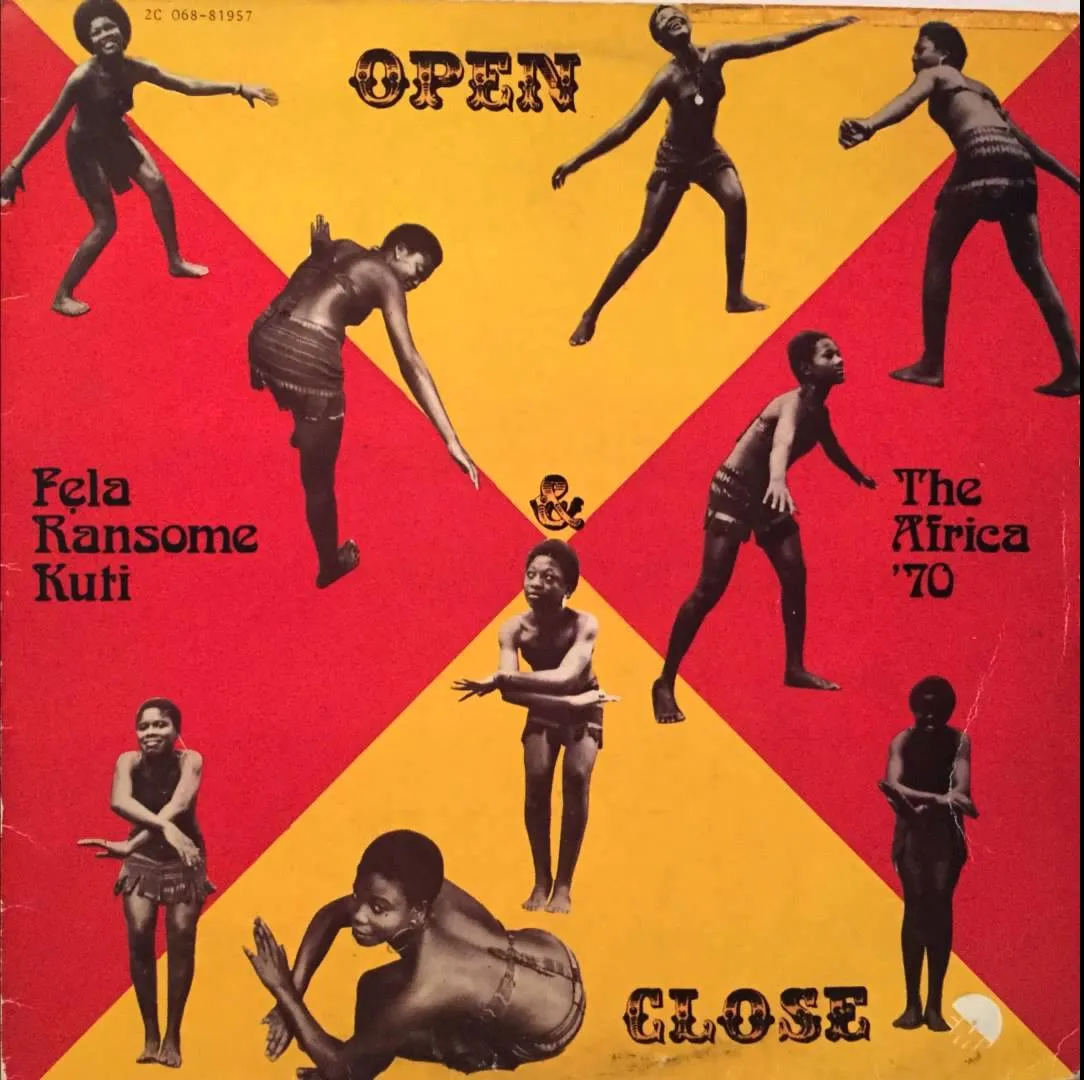
source:
Album artwork from before Fela dropped the name "Ransome" from his double-barrel last name, as that part of his name had slave origins
WHAT IS AFROBEAT?
Afrobeat was the name of the particular brand of music that formed when African musicians - particularly Fela and his team - in an attempt to distinguish their own style of soul or funk from that of their Amerian counterparts, incorporated elements of some of the local genres, such as highlife and juju, into the sounds of soul, jazz, funk and psychedelic rock. After just a few seconds into any Afrobeat track, it's easy to hear the difference between this "Afro-funk" and a more American funk. The emphasis on vocal chants, the harmonies, the complex and powerful rhythms, and the often politically charged lyric-content all serve to make Afrobeat into a genre unto itself that still carries relevance today.
Water No Get Enemy
To try and get an idea of how much of an impact Fela had on the world - not just the general public, but fellow musicians as well, I've decided to link to this article by OkayAfrica. Here's one clip shared from their site where none other than Sir Paul McCartney talks about and gives his respect to the greatness that was Fela Kuti.
POLITICAL ACTIVISM
It's hard not to talk about music from the 1970's in Africa without mentioning the politics of the African continent at the time. Many countries were still under the yoke of colonial rule or had recently gained independence. Nigeria had gained independence in 1963, but as a very young, independent country, it was still experiencing deep issues, especially after a civil war in 1967 and heavy-handed, oppressive military rule.
During a 1969 tour of the USA, Fela was exposed to the politics and activism of those like Malcolm X and the Black Panther Party. This seemed to form a turning point in his career when it came to what he chose to center his lyrics around, and upon his return to Nigeria, he embarked on a creative war with the government, bravely speaking out about their human rights abuses and terribly corrupt practices.
At the time, Nigeria was ruled by "The Supreme Military Council" (they don't sound nice, do they?) they were in power from 1966 until 1979.
Fela and his band, Afrika 70, wrote and performed about the issues that plagued their country. Probably the most notable confrontation between any government in the world and a single musician was that between Fela and the Nigerian military government. The confrontation came to a boiling point in 1976 when Africa 70 release the track "Zombie", which described the mindset and actions of those mindless souls in the Army.
Zombie no go go, unless you tell am to go (Zombie)
Zombie no go stop, unless you tell am to stop (Zombie)
Zombie no go turn, unless you tell am to turn (Zombie)
Zombie no go think, unless you tell am to think (Zombie)
Tell them to go straight
A joro, jara, joro
No break, no job, no sense
A joro, jara, joro
Tell them to go kill
A joro, jara, joro
The track was a hit across Africa. A track that ridiculed the military, and a proxy attack on the government. They were furious and reciprocated with a force that could only be explained by a guilty and wounded pride.
Sending 1000 soldiers to Fela's Kalakuta compound in a massive show of aggression, they sacked the compound, burnt it down, beat the men and raped the women. His own mother was thrown out of a second story window and died after spending several weeks in a coma.
Think about that for a second. A thousand armed men, sent to teach a lesson to a musician and his followers.
Fela was a hero to so many ordinary people. He was much more than a singer and an entertainer. He attempted to use his fame and the massive voice he had created as a force for good.
He was once quite vocal about running for president and would say that his first act would be to make every citizen a police officer. He said that "Then before a policeman could slap you, he would have to think twice because you're a policeman, too."
After Afrika 70 he formed Egypt 80, which was very much a statement in and of itself that Egypt was a part of Africa. Its little wonder Fela was known as the "Black President".
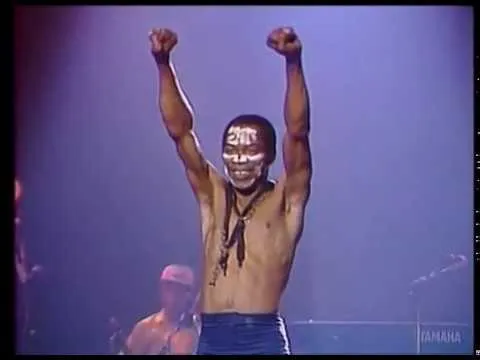
Fela Kuti and the Egypt 80, live at Zenith, Paris 1984
If you've enjoyed listening to Fela Kuti and are keen to explore some more of the genre, check out some of these artists:
- Femi Kuti
- Ebo Taylor
- Tony Allen
- Seun Kuti
- Mulatu Astatke
- King Sunny Ade
- Manu Dibango
If you want to check out Fela's extensive Discography click the link.
Authored by @heypapalegend

Vote @adsactly-witness for Steem witness!
Witness proposal is here:
Witness Proposal
Go To Steem Witness Page
In the bottom of the page type: adsactly-witness and press vote.

Thank You
Witness proposal is here:
Witness Proposal
Go To Steem Witness Page
In the bottom of the page type: adsactly-witness and press vote.

Thank You
In the bottom of the page type: adsactly-witness and press vote.

